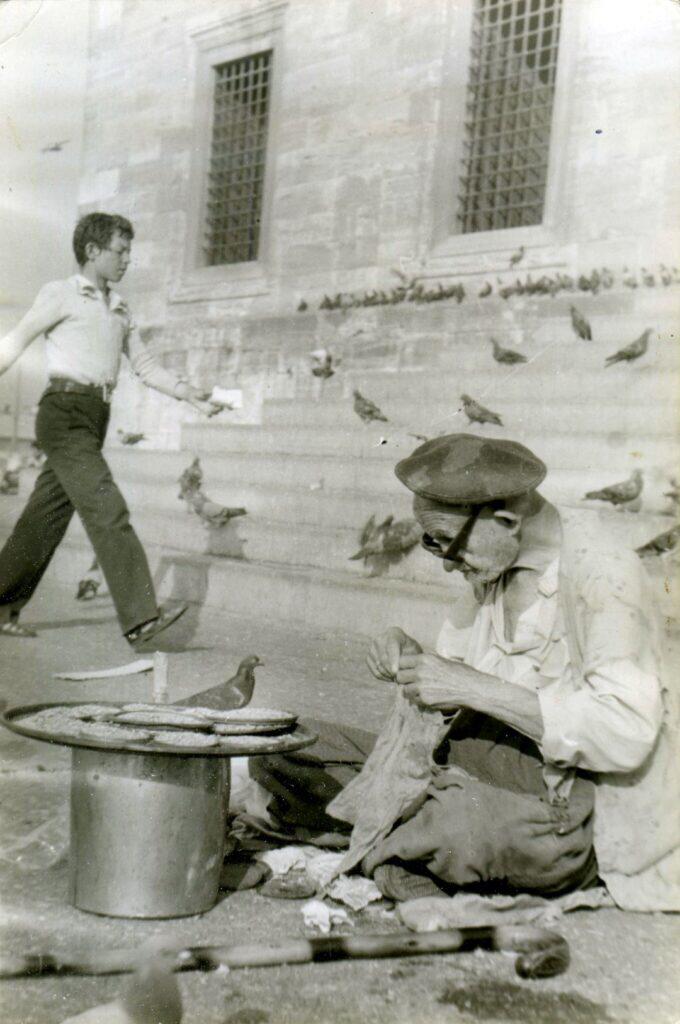Turkish culture has its own set of gestures that convey various meanings. Here are some basic gestures commonly observed in Turkish culture:
- Head Nodding:
– A single, slight nod usually indicates agreement or acknowledgment.
– A series of quick nods can express enthusiasm or approval.
- Hand Gestures:
– Using the thumb and fingers to make the gesture that resembles “OK” can mean everything is good or okay.
– Pointing is often done with the entire hand instead of just the index finger.
- Raised Eyebrows:
– Raising the eyebrows can signify surprise, interest, or inquiry.
- Hand Kiss:
– It is a sign of respect, often done when greeting someone older or showing admiration.
- Cheek Kissing:
– Common among friends and family, cheek kissing is a common greeting gesture.
- Handshake:
– Firm handshakes are common in professional settings and as a general greeting.
- Expressive Facial Gestures:
– Turks are known for using facial expressions to convey emotions such as happiness, frustration, or confusion.
- Crossed Fingers:
– Crossing fingers is a gesture of wishing for good luck or expressing hope.
- Palms Facing Upward:
– It can be a way of expressing helplessness or openness to receiving something.
- Putting Hand on Heart:
– Demonstrates sincerity or heartfelt emotion, often used when expressing gratitude.
It’s important to note that gestures’ meanings can vary, and interpretations may depend on context and individual communication styles. When in doubt, it’s advisable to observe and adapt to the specific social norms of the cultural context you are in.
Turkish Behaviours
Defining the characteristic behavior of a diverse group of people like the Turks is challenging, as individuals within any culture can exhibit a wide range of behaviors. However, there are certain cultural traits and tendencies that are often associated with Turkish people:
- Hospitality: Turks are known for their warm hospitality. Guests are typically treated with great kindness, and it’s common for hosts to go out of their way to make visitors feel welcome.
- Respect for Elders: Respect for elders is a significant cultural value in Turkey. It is customary to show deference to older individuals and consider their opinions and advice with high regard.
- Strong Family Bonds: Family is a central focus in Turkish culture. Close-knit family structures and a sense of responsibility towards family members are common.
- Expressive Communication: Turks often use expressive body language, facial expressions, and gestures to convey emotions and thoughts. Non-verbal communication is an integral part of their interaction.
- Collectivism: There is a sense of collectivism in Turkish culture, emphasizing the importance of community and group harmony over individual pursuits.
- Politeness: Politeness and courtesy are valued in social interactions. People generally use formal titles and honorifics in addressing others, especially in formal settings.
- National Pride: Turks take pride in their history and cultural heritage. National symbols, traditions, and events hold significant importance.
- Adaptability: Given Turkey’s unique geographical location and historical context, Turks often display adaptability to various influences and changes.
- Diverse Cuisine: Turkish cuisine is diverse and flavorful, reflecting regional variations. Sharing meals is a social activity, and food holds cultural significance.
- Expressing Emotion Openly: Turks may express their emotions openly, and conversations can be passionate and animated, reflecting a genuine engagement with the topic at hand.
It’s crucial to recognize that individual behavior can vary widely, and not everyone within a cultural group adheres to the same characteristics. These generalizations provide a broad overview but may not capture the full diversity within the Turkish population. Understanding cultural behaviors involves recognizing both common tendencies and the uniqueness of each individual.






















